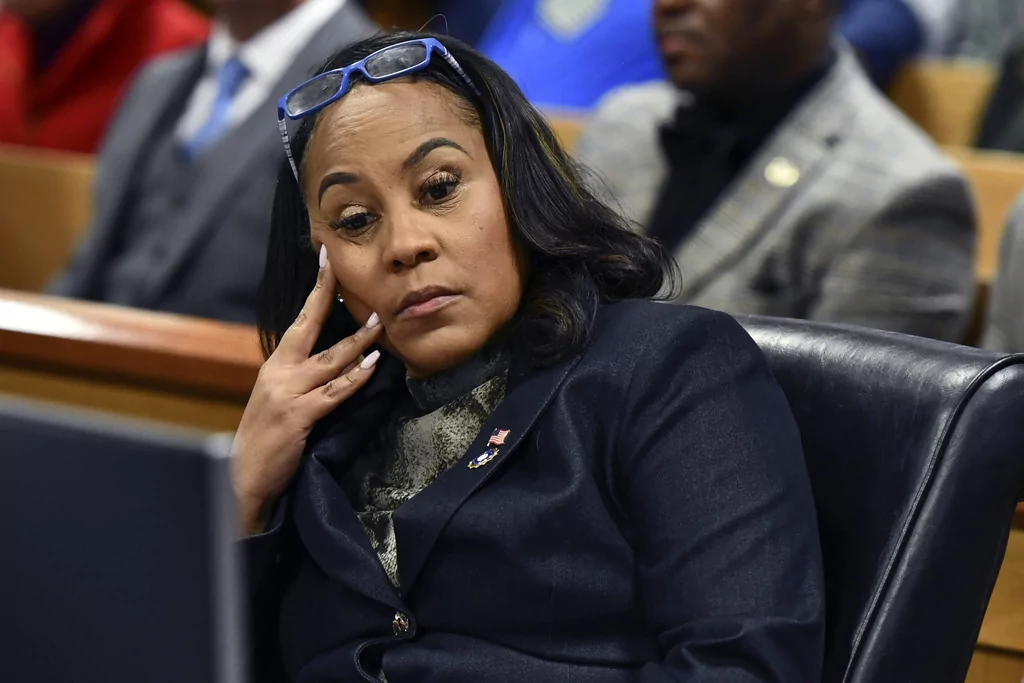

A tense hearing related to the Georgia criminal case against former President Donald Trump resulted in a judge allowing one of his co-defendants the chance to subpoena Fulton County District Attorney Fani Willis.
The decision by Fulton County Superior Court Judge Rachel Krause to keep the door open for a subpoena against Willis followed her initial refusal at the outset of the hearing to find Willis in contempt over her alleged violation of state open records laws.
“Unless and until Ms. Willis is called to the stand and refuses or fails to appear, if ordered to do so, she’s not in contempt, and so that motion is premature,” Krause said Thursday morning before the judge also dealt prosecutors a blow over their motion to quash the subpoena against Willis.
Judge in Fani Willis open records hearing: “I received a motion to hold Miss Willis in contempt for lack of compliance with the subpoena for today’s appearance… unless Miss Willis is called to the stand and refuses or fails to appear… she’s not in contempt, so that motion is… pic.twitter.com/mUfpkwxT0j
— Blue Georgia (@BlueATLGeorgia) September 19, 2024
Krause sought to temper both prosecutors and defense attorney Ashleigh Merchant, who represents Trump co-defendant Michael Roman, after the judge acknowledged both parties were making premature attempts to have their motions granted without first hearing testimony from other county officials as part of the civil lawsuit.
“This is a civil case, not a criminal case,” Krause said, noting, “I, too, have had to remind myself.”
The Trump co-defendant’s lawsuit, filed earlier this year, accuses Willis and her office of violating the Georgia Open Records Act by failing to provide records related to the employment of Nathan Wade, the former special prosecutor forced to resign from his role on the Trump prosecution due to his prior romantic relationship with Willis. Merchant has also accused Willis’s office of “hiding documents” concerning a media monitoring firm, claiming that taxpayer funds were used to pay for the service.
Merchant filed her motion on Wednesday in an attempt to force Willis to testify at the Thursday evidentiary hearing, arguing that the court should find her in contempt and “have her brought into custody” if she did not show up to the hearing.
Although the judge said she was “not going to entertain” the defense attorney’s motion, she told lawyers for Willis’s office that it would likewise be premature to grant Willis’s motion to quash the subpoena.
“The motion to quash is not something that I’m going to entertain right now. I’m not going to relieve madam DA Willis,” Krause said.
For the remainder of the afternoon, Merchant asked several questions of Fulton County Deputy District Attorney Dexter Bond. Their exchanges were both tense and heated at times.
“Do you as a matter of practice use email to request open records?” Merchant asked.
Things are getting a bit heated between Ashleigh Merchan and Deputy DA, Dexter Bond. pic.twitter.com/LA9Ob83x9d
— Blue Georgia (@BlueATLGeorgia) September 19, 2024
“It depends on what you’re asking for. … Sometimes I do it orally. … Sometimes I have someone else send an email,” Bond said.
As the hearing continued into the afternoon and past 5 p.m. local time, the judge appeared more open to enforcing subpoenas against at least some of Willis’s employees.
However, it is not clear when Krause will make her ruling in the case.
The hearing comes a day after another judge denied Willis’s attempt to quash a subpoena that would force her to testify before a Georgia Senate committee, which is investigating her actions surrounding the Trump election interference case.
Meanwhile, Willis has sustained even more setbacks in her case against Trump in recent weeks. The criminal case’s trial Judge Scott McAfee has dismissed five of the original charges against Trump, bringing the total charges from 13 to eight.
CLICK HERE TO READ MORE FROM THE WASHINGTON EXAMINER
No trial can commence for the former president until the Georgia Court of Appeals rules on Trump’s appeal of McAfee’s original ruling to keep Willis on the case after defendants said her relationship with Wade should result in her disqualification from handling the case.
The appeals court is slated to hear arguments over that effort in December, roughly one month after the 2024 presidential election.





